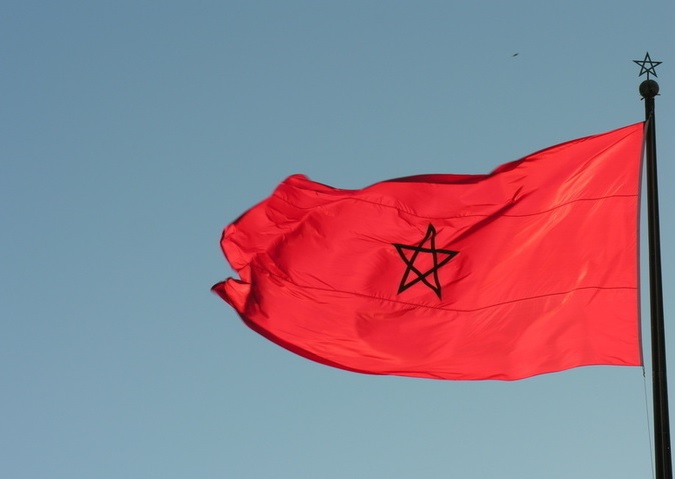Undercurrent News
Matilde Mereghetti
Spanish shipowners and crew affected by the temporary cessation of their fishing activities in Morocco will receive state help, the Spanish minister of fisheries, Luis Planas, has said, El Faro de Vigo reported.
The fisheries agreement between Morocco and the EU, which had been in force since July 15, 2014, expired on July 14 at midnight, the European Commission confirmed to Undercurrent News.
As of July 15, European ships cannot enter Moroccan waters because the EU-Morocco fisheries agreement has not yet been renewed, Javier Garat, president of Spanish fishing association Cepesca, told Undercurrent. In 2018, 49 Spanish vessels had requested the license, according to Cepesca.
“Negotiations between EU and Moroccan authorities are currently ongoing for a new agreement and a new protocol,” an EU official told Undercurrent, after confirming the previous agreement had expired on July 14 but without commenting on the impact of this on the European fleet fishing in Moroccan waters.
“In spite of four rounds of negotiations, the parties could not agree on a follow-up protocol, forcing the EU fleet to return home from Morocco. The remaining point of contention is a financial one: Morocco wants to receive a financial contribution that is twice the amount of what it received under the just-now expired protocol: an annual €80 million instead of €40m,” said Sara Eyckmans, coordinator at Western Sahara Resource Watch.
Photo credit: Western Sahara Resource Watch
“The EU and Morocco had fairly rapidly agreed to expressly refer to Western Sahara — where over 90% of the catches are done — as part of the geographical scope of a new protocol, though the [EU] court [of Justice] has ruled that to be in violation of the right to self-determination of the people of Western Sahara. The Polisario Front has already initiated legal proceedings regarding the plans to further the EU-Morocco fisheries cooperation in Western Sahara,” Eyckmans added.
On July 15, the EU ministers of foreign affairs backed the EU commission’s proposal to include Western Sahara into the EU-Morocco trade agreement, in spite of not having the consent of the people of Western Sahara as ordered by the Court of Justice in December 2016, Eyckmans also said. “The representative body of the people of Western Sahara, the Polisario Front, has condemned the decision. The EU parliament is expected to cast its vote on the proposal in the autumn,” Eyckmans said.
Some 120 vessels from EU countries, including 90 vessels from Spain, have left the country as the two parties did not reach a new deal, Xinhua reported.
Since April 20, Morocco and the EU have been negotiating a new deal.
Moroccan octopus season
However, the ongoing Moroccan octopus season is not going to be affected, sources told Undercurrent.
Octopus quota is allocated almost entirely to the country’s national fleet, while European vessels there fish mainly meager and other species, a source in Morocco pointed out.
Negotiations failure
Earlier this month, Undercurrent reported negotiations between Morocco and the European Union were ongoing after a legal advisor to the European Court of Justice said earlier this year the fisheries agreement concluded between the EU and Morocco was “invalid” because “it applies to Western Sahara and its adjacent waters”.
“Fishing vessels from Spain, France, Germany, and Denmark have been caught fishing illegally in occupied Western Sahara after the EU Court of Justice had invalidated the practice in February this year. Western Sahara, the Court stated, does not fall under Moroccan sovereignty or jurisdiction, and is not part of Moroccan fishing zones – a notion used throughout the EU-Morocco fisheries agreement and its implementing protocols,” Eyckmans said.
“WSRW has monitored the fisheries practices in the territory since that ruling and can affirm that the vessels mentioned in the article have gone on to fish in the waters of occupied Western Sahara after the EU Court had ruled on the matter,” she added.
“Extensive discussions have taken place in Rabat on the technical and legal elements of the negotiations. And negotiations will continue in Rabat from July 3 to 5. The EU remains determined to negotiate all the necessary instruments, while fully respecting the judgment of our independent Court of Justice,” an EU official said at the beginning of July.
It seems that the disappointment of the European fishermen was great after the failure of the initial agreement before the date of 14 July, which will dispel prospects of hope for the upcoming fishing period, putting EU politicians under pressure, reported Moroccan paper Marocbleu.
Contact the author matilde.mereghetti@undercurrentnews.com




